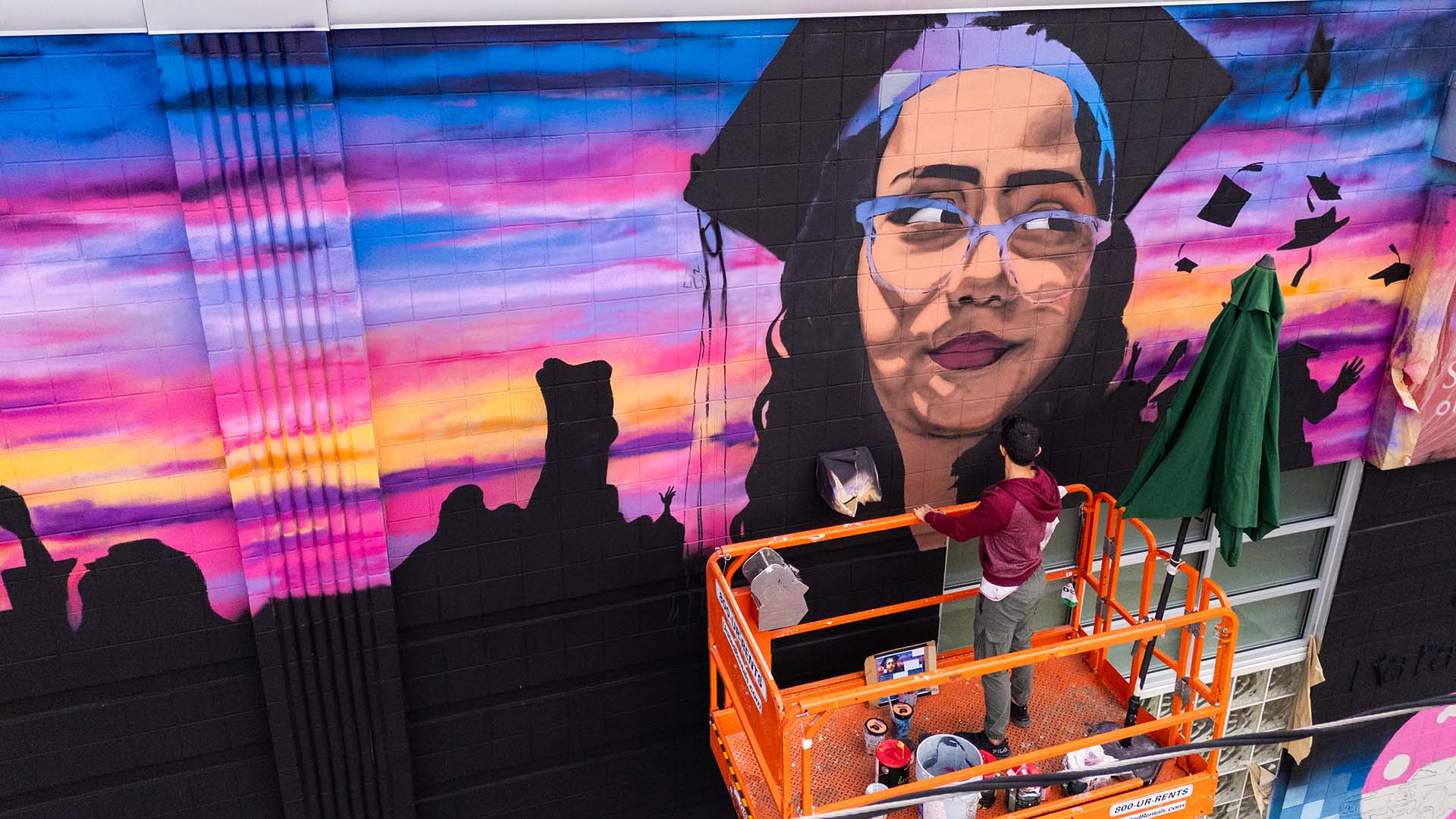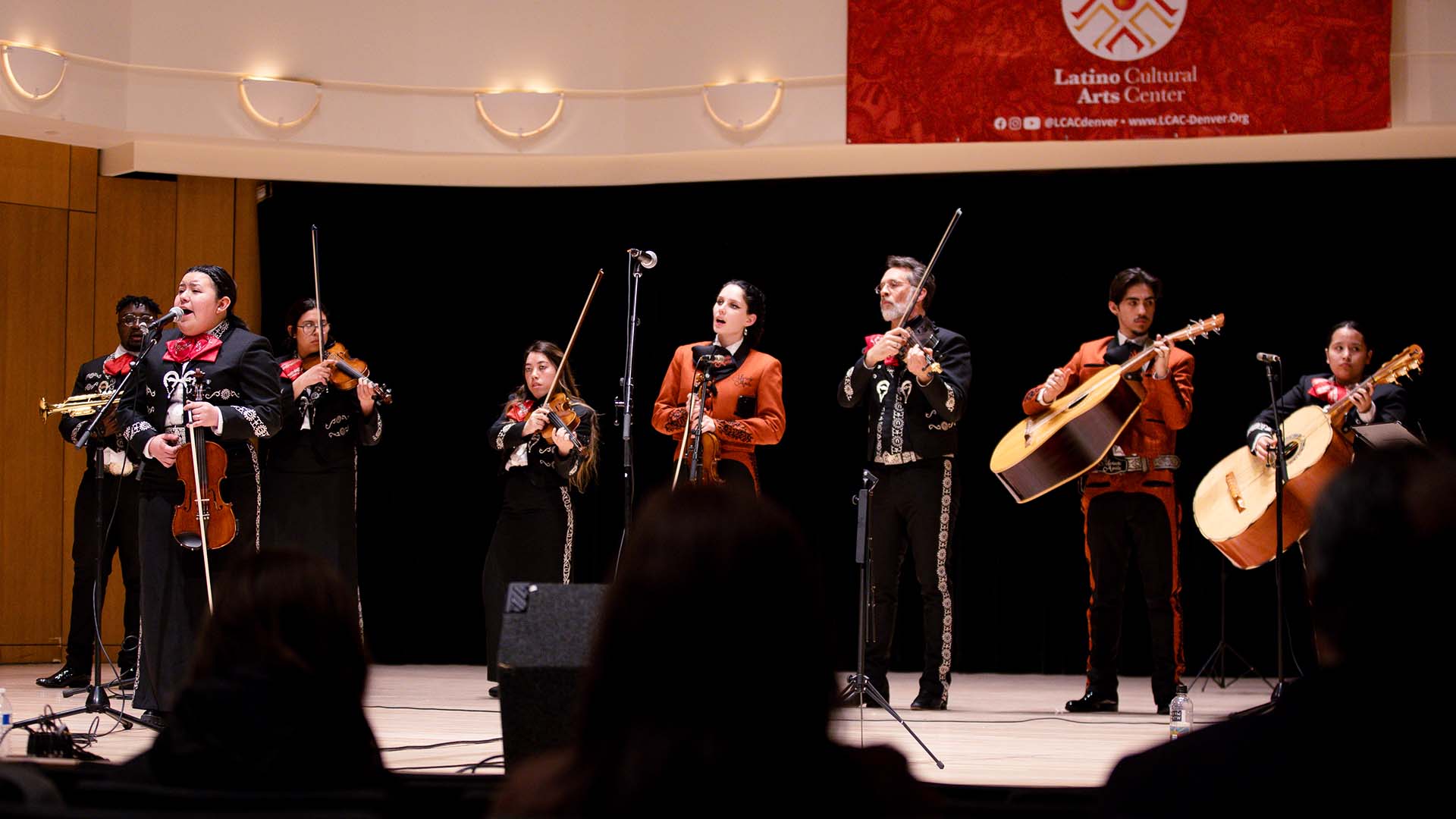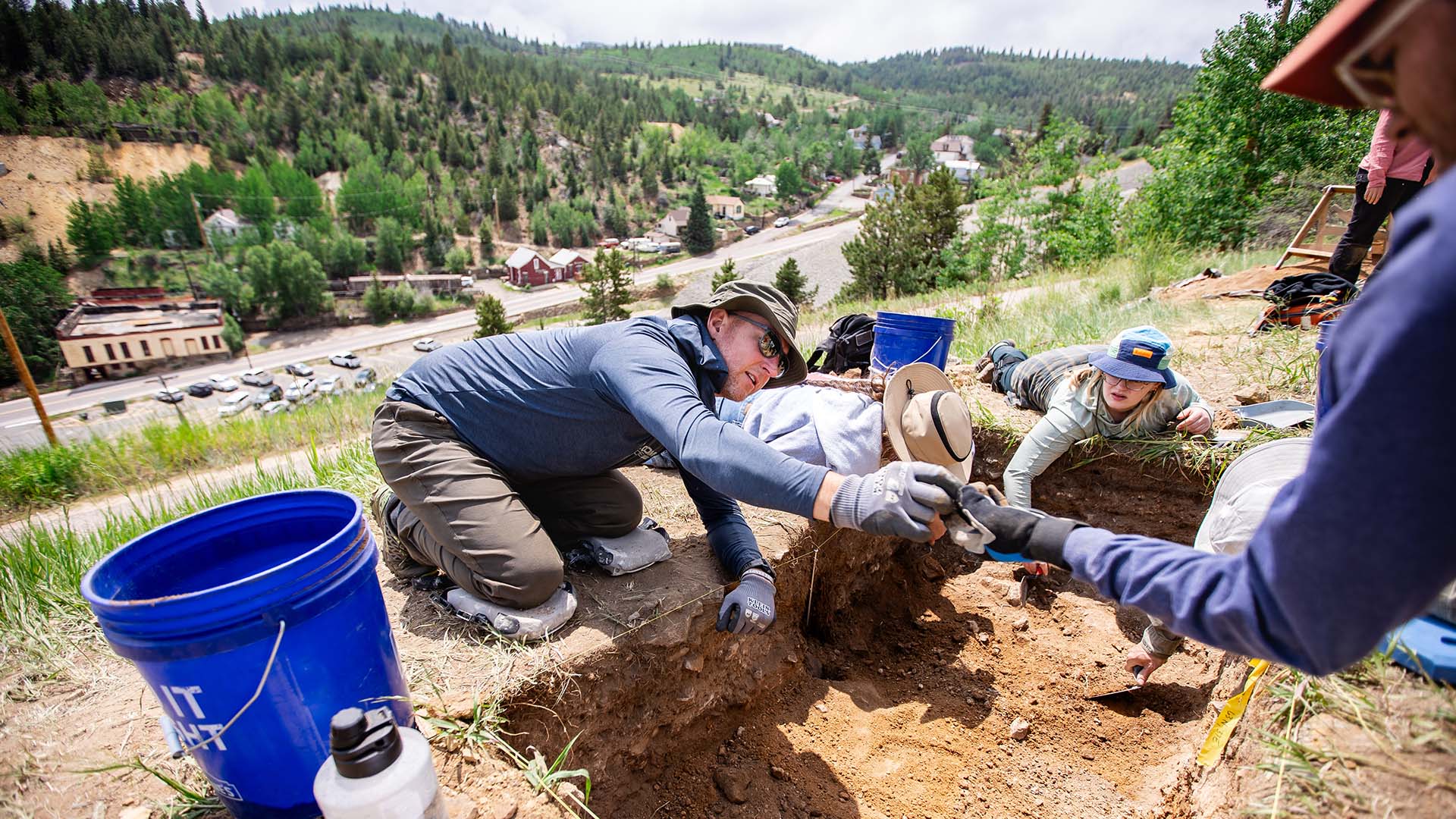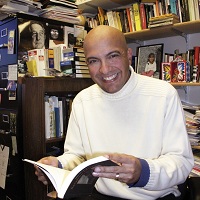How “Game of Thrones” took over the world
Spoiler alert: 'GoT' is awesome. Here's how the HBO fantasy drama became a global obsession — and the focus of a new class.

When the final season of HBO’s “Game of Thrones” premiered on April 14, 17.4 million people tuned in.
And the truly remarkable thing about it is that many of those viewers had already spent the better part of a decade following every last double-cross, stabbing, raunchy coupling and dragon fight.
‘GoT’ is not your average television show: Millions of fans obsess over the tiniest plot details — or stray Starbucks cup — online. Baby names inspired by its characters have shot up in popularity. The President even uses its memes for his tweets.
Why and how has ‘GoT’ become a national obsession? Vincent Piturro, associate professor of English and Cinema Studies at Metropolitan State University of Denver, offers seven good reasons — and provides a glimpse into his new ‘GoT’-focused class debuting next fall.
It’s all about the story.
Piturro: The biggest reason for the show’s success is also the simplest: It’s always about story and character. “Game of Thrones” didn’t invent anything new. This goes right back to Homer. Ultimately, we just want engaging stories with characters we can relate to and sympathize with — and even kind of live with. Timeless storytelling never grows old, and the show tapped into that.
It provides an entire new world into which we can disappear.
Piturro: Famously, “Game of Thrones” is a densely populated television series featuring a vast network of family trees, with countless plot-lines and characters. And the TV series is itself derived from George R.R. Martin’s even more richly detailed collection of novels.
In many respects, “Game of Thrones” is like a grown-up Harry Potter. It basically reproduced the Hogwarts template: Tell a fascinating tale with relatable characters, then throw in some eye-catching mystical elements. And since our own lives are now so well-ordered and technological, I think we yearn for the sense of wonder contained in these stories.
So when you combine the breadth of the television series (when it concludes, it will tally 73 hours in total) with the depth of the books, there’s an entire fictional world into which we can disappear. I think that’s why the show attracts such an obsessive kind of fandom. Whether you’re a reader or viewer, there are endless points of debate and conspiratorial rabbit holes to go down.
This is seriously good film-making.
Piturro: I’ll be teaching a class on “Game of Thrones” at MSU Denver in the fall, and there’s so much great material to study.
We’ll look at story structure and the multi-season character arcs that are drawn so compellingly. Then there are the technical aspects, such as the mise-en-scene — how all the visual elements are presented on screen. We’ll also study the ambitious cinematography and the particularly brilliant editing — it’s incredible how the show weaves together so many storylines without losing clarity. We’ll also dig into sound design, because the layering of sounds throughout is remarkable. (Fun fact: They have someone working on the show whose sole job is to manage the bird sounds!)
“Game of Thrones” is a fascinating study subject, because of its sheer breadth – in terms of budget, shooting schedule and the huge crew size – is unprecedented on television.
Because, women.
Piturro: One of the show’s more inspired ideas was to create an ancient setting and then throw in a very modern set of female characters, most of whom could be running for president in 2020.
Think about it: “Game of Thrones” presents a viciously patriarchal and misogynistic society where the strongest and most resourceful characters have consistently been women. The villainous Cersei Lannister, for example, runs rings around everyone. Sansa Stark has turned out to be a master strategist. Queen Daenerys Targaryen only seems to falter when she listens to men. Plucky Arya Stark and the noble giantess Brienne of Tarth are studies in strong, forward-looking womanhood.
It’s probably no coincidence that one of the show’s most beloved catchphrases – “Dracarys!” – is the command uttered by a dragon-riding queen whenever she wants her giant pet to flambé an (almost inevitably male) pompous leader or enemy soldier.

You literally never know what will happen next.
Piturro: Since the beginning, the writers have done a wonderful job of misdirecting the viewer and throwing in big shocks. This, after all, is the show that decapitated its leading star (Sean Bean’s Ned Stark) during the very first season. And ever since, it has flouted every TV convention with abandon and taken a ruthless approach to culling its own cast.
It’s generic and highbrow.
Piturro: Despite its enormous commercial success, I still think “Game of Thrones” has been critically undervalued. For me, the show is not only endlessly entertaining; it also has all the ingredients of a serious piece of art.

But in academia particularly, there’s a tendency to view anything popular with suspicion. We always doubt its artistic heft or ability to go beyond the surface of the story. Graphic novels, for example, took a long time to be accepted as a serious literary form. And until very recently, cinema generally looked down on television. That paradigm is now slowly starting to shift (and HBO, which produced both “Game of Thrones” and “The Sopranos,” takes a lot of credit for that), but there’s still a way to go. I hope that in the future more universities will study the show and give it the serious critical attention it deserves.
Watching the show constantly play with audience expectations, I’m reminded of Alfred Hitchcock’s words about the difference between surprise and suspense. If a character sits at a table, the director said, and a bomb underneath it suddenly goes off, you’re surprised. But if you see the bomb and the character doesn’t, then that’s suspense.
“Game of Thrones” offers a clever twist on this. Often, what you think is suspense turns into a massive surprise — as happened in the show’s infamous Red Wedding massacre scene, where most viewers were every bit as shocked as the poor guests who were garrotted en masse.
About that season finale…
Piturro: I’m not really in the prediction business. But as “The Sopranos” did, I strongly suspect “Game of Thrones” will serve up a controversial ending that people will either love or hate. Either way, we will be talking about it for a long time.
The show has never given us the happy, tied-up resolutions that we think we want, so I doubt it will start now. But here’s the point: All those dashed hopes, early deaths, random tragedies — those are the compelling details that keep us coming back for more. The genius of the series’ writers has been to know better than the viewers themselves what they really want.
The director Federico Fellini had a great quote: “Our duty as storytellers is to bring people to the station [but from] there each person will choose his or her own train.” Basically, he was underlining the importance of not doing all the audience’s work for them. And when the final credits roll on the final episode of “Game of Thrones,” I imagine it will all seem slightly messy, frustrating and unfair. Viewers shouldn’t want anything else.







